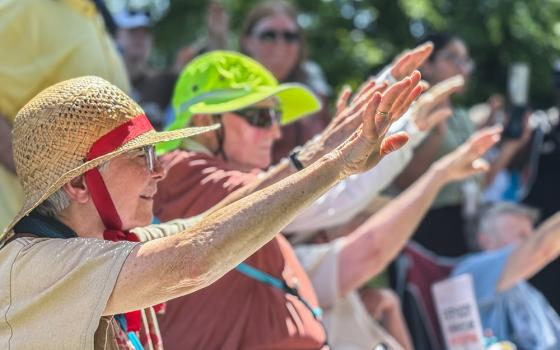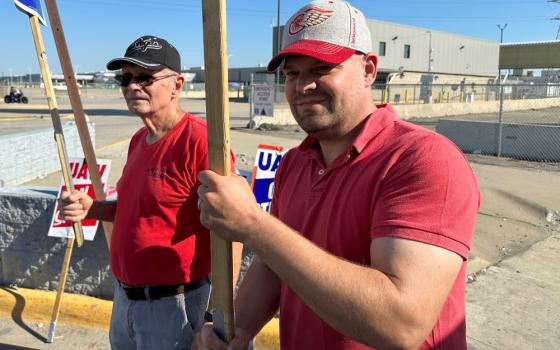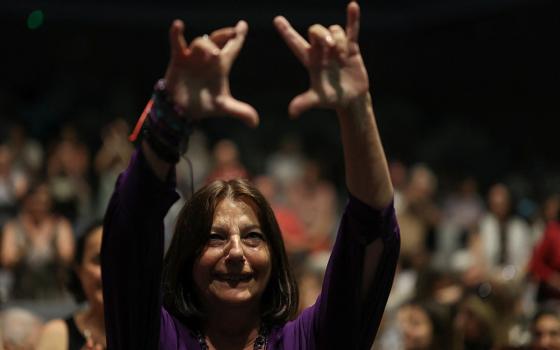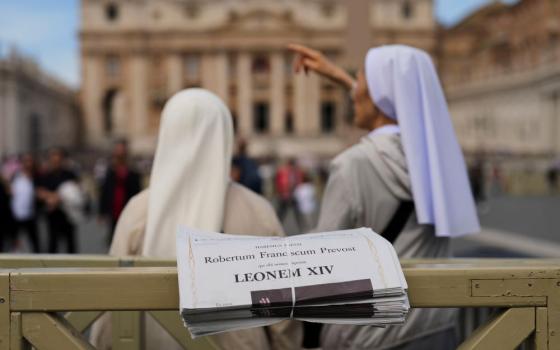Sisters, historians and archivists will gather next week at the University of Notre Dame for four days of helping historians discover and preserve sisters' records and make them part of the larger societal narrative.
Running June 26-29, the Conference on the History of Women Religious will focus on diversity and dignity. The academic conference is held every three years; this will be the 12th since it began in 1989.
"Yes, it's an academic conference, but it's very accessible," said Kathleen Sprows Cummings, director of Notre Dame's Cushwa Center for the Study of American Catholicism, which is hosting the conference. Cummings is also a professor of American studies and history at Notre Dame and a senior fellow in gender studies whose most recent book is A Saint of Our Own: How the Quest for a Holy Hero Helped Catholics Become American.
"It's a highly engaged audience and dynamic papers," Cummings continued. "In 2019, there was a wonderful presentation on Sr. Thea Bowman, and afterward, the presenter led us all in singing 'Amazing Grace,' just like Sister Thea did."
Cummings said when the conferences began, attendees were primarily sisters writing scholarly articles for other sisters. But over time, attendance has evolved to mainly historians and archivists who are not vowed religious but are writing about sisters. The conference has been under the auspices of the Cushwa Center since 2013.
Advertisement
"The goal was to integrate the story of sisters into the larger narrative," Cummings said. "There's much more interest in women religious right now."
Cummings will give the conference's keynote address, "Monumental Women: Remembering Catholic Sisters at Notre Dame and in America," on June 26.
Among the sisters presenting is Sr. Patricia Byrne of the Sisters of St. Joseph of Baden, Pennsylvania, who will give a talk June 27 on Sisters of St. Joseph who were guillotined in 1794 during the French Revolution. She will also present on Chinese women in American congregations and take part in a roundtable discussion on the role of historians.
The conference will also feature Margot Fassler, the Keough-Hesburgh Professor of Music History and Liturgy at the University of Notre Dame, who for the last seven years has been working on a digital model of 12th-century Benedictine abbess Hildegard of Bingen's vision of the cosmos, the so-called "Cosmic Egg."
Cummings said the relationships formed at the conference often help researchers find and get access to records otherwise out of their reach.
"It can be hard as an outsider to get access to sisters' archives," she said. "I know of a number of cases where students early in their doctoral career met sisters at the conference who were then able to help them access archives."
Access for historians of all types is especially important because the records they need often don't exist outside of convents.
"Very few women's organizations kept the kind of meticulous records that women religious did," Cummings said. "Sisters are good subjects, and the history of women religious is the history of women."
Registration for the conference closed May 1, but there is a waitlist in case places become available. Registration, which is $150, includes conference materials and several meals, but sessions are free and open to the public, and registration is not required to attend panels. Cummings said about 175 people are expected to attend.
The event is co-sponsored by St. Mary's College in Notre Dame, Indiana; the Center for Spirituality at St. Mary's College; and Notre Dame's Medieval Institute.







